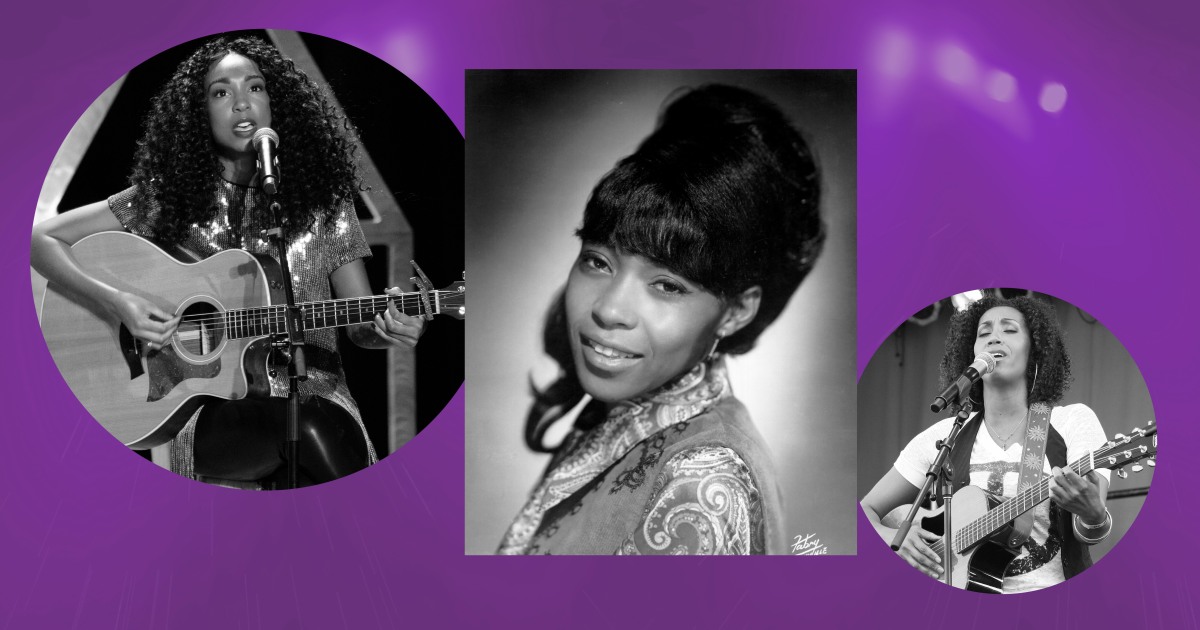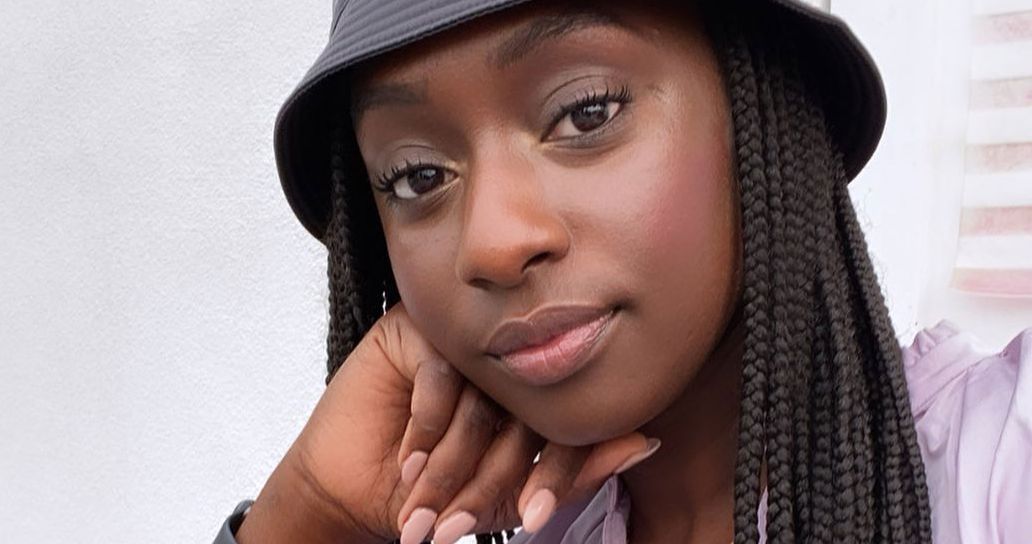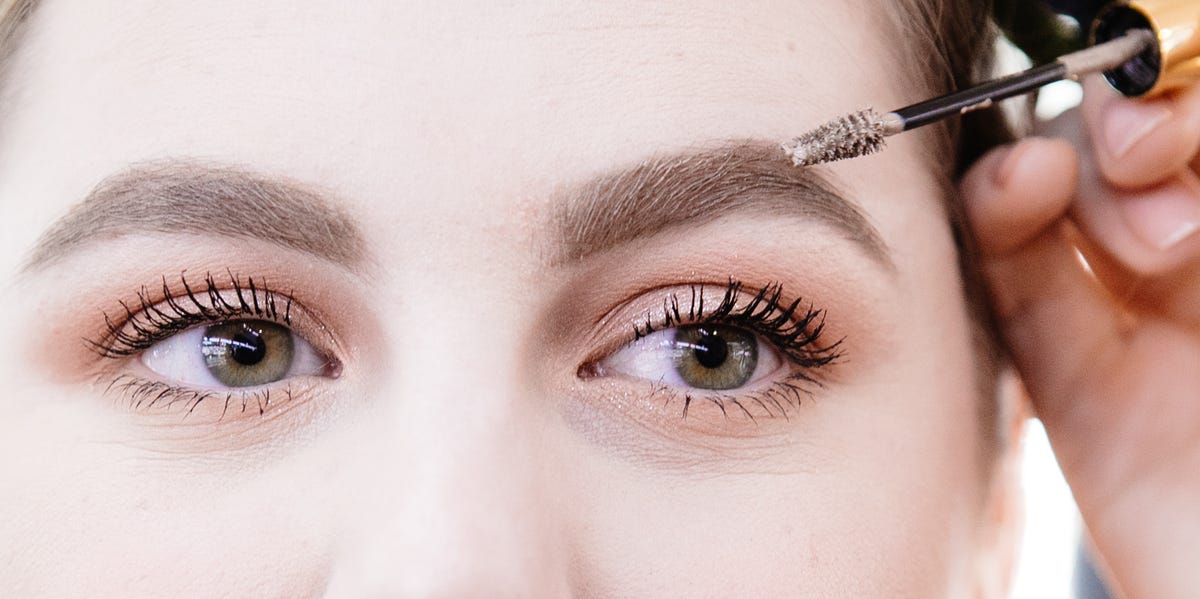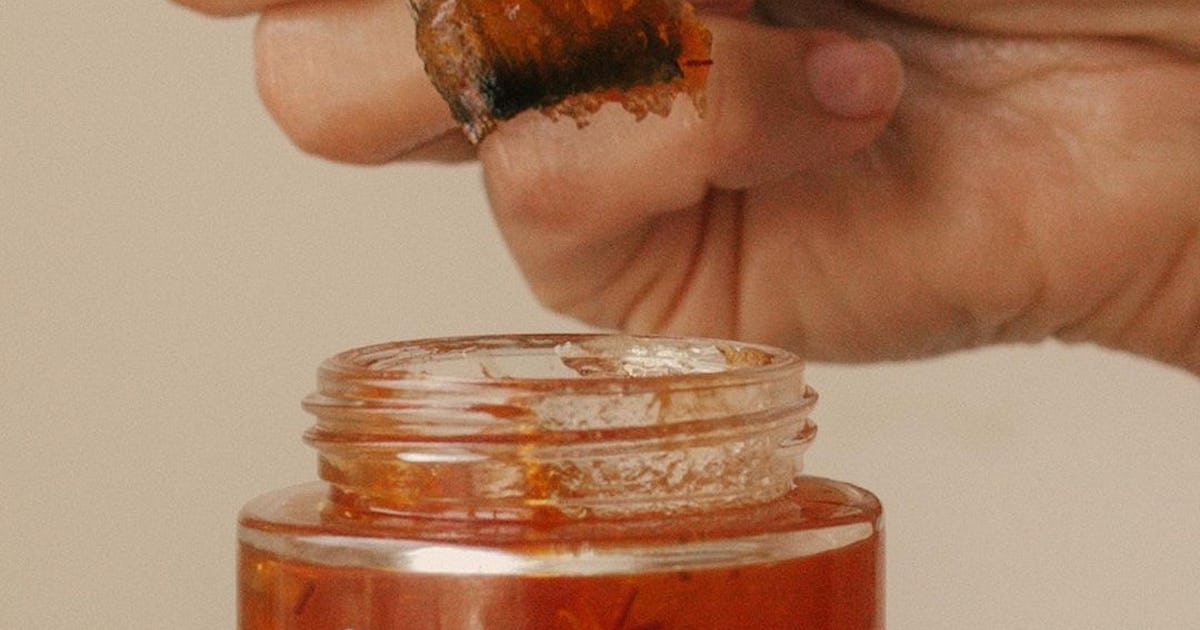Rissi Palmer was fed up with looking at songs content articles that outlined the identical 5 state artists of coloration around and about once more, seemingly erasing the expansive heritage of Black and brown artists’ contributions to nation audio.
Which is why Palmer, a profitable state artist who has executed at the White Residence, Lincoln Heart and the Grand Ole Opry, commenced her Apple New music radio present, “Coloration Me Place.” The demonstrate aims to realize and validate the presence and heritage of Black and brown women of all ages in place tunes, together with Mickey Guyton, Tiera, Miko Marks and quite a few others.
“There are so several individuals out there that seem like me — or are Latina or Latinx or Indigenous or whichever — that want to be in the business,” reported Palmer, who is Black. “And in some cases it just will help to just see any person that appears to be like you.”
Palmer’s radio exhibit is named soon after Linda Martell’s 1970 album “Colour Me Country.” Martell was a trailblazer in nation new music when, in 1969, she turned the to start with Black female to carry out solo at the Grand Ole Opry. But Martell’s contributions to the style, as properly as those people of other Black and brown country artists, have mostly long gone underneath the radar.
Females of colour have prolonged faced a lifestyle of exclusion in place songs, a genre that has usually favored white adult males, even nevertheless its roots are joined with early Black American songs. Considering that country music’s founding in the 1920s, only four Black female solo artists and a single all-Black woman group have charted on a region new music chart. On the Billboard list of 50 Top rated State Artists in 2019, only 4 are feminine solo artists and just one is a woman team, and none are Black.
Place tunes under no circumstances had a reason to improve, but now with an ever more numerous audience and additional the latest cultural reckonings about gender and race, alter might be inevitable. The genre’s gatekeepers continue being reluctant to accept the increasing figures of assorted country artists and listeners. Even so, some performers of coloration are forging their personal paths in any case.
Erased historical past
Country audio would not be what it is these days without having the contributions of African Us residents, Palmer said. Hank Williams Sr. uncovered to play guitar from Rufus “Tee Tot” Payne, a Black musician, and The Carter Family realized their guitar riffs from Lesley Riddle, also a Black guy. A whole lot of nation music’s early design arrived from the gospel songs sung at Black church buildings in the South.
“Black men and women and brown persons have generally experienced an interest in region songs — they’ve often played it and normally savored it,” reported Amanda Marie Martinez, a doctoral candidate at UCLA, who has penned extensively about race in state music.
The roots of Black artists in region tunes are even in the instruments themselves, Martinez stated: The banjo is an African instrument, and the fiddle was played predominantly by slaves. The tunes played by African slaves was borrowed and carried out into the tunes of white Southerners.
Even while Black and white Southerners were enjoying the same audio, state radio in the early 20th century typically highlighted new music by white adult males. Place radio as a result carved out a niche in the market to charm to the “anti-youth tradition” of white conservatives.
A handful of Black woman artists, like Martell, attempted to split into the genre after Charley Pleasure, a Black artist, signed with RCA Victor (now RCA Records) in 1965. But they experienced little achievement.
“The man who signed her consciously place her on his label, ‘Plantation Records,’ and mainly promoted her as a novelty,” Martinez explained. “He finally dropped her immediately after her initial album.”
In an interview this yr with Rolling Stone, Martell described how Shelby Singleton Jr., the man who signed her to Plantation Data, stopped advertising and marketing Martell in favor of a white artist on the label. When Martell still left Plantation Records in 1974 and attempted to indicator with one more label, Singleton blackballed her, she said, efficiently ruining her name and ending her nation music career.
While Martell’s profession commenced and finished in country new music, the Pointer Sisters saw their job acquire off with their region album, “Fairytale.” The twang-large, undeniably state album gained the Pointer Sisters their very first Grammy for greatest state and western vocal general performance by a duo or group in 1974. It was also the first region Grammy gained by Black females.
The win, nevertheless, didn’t set a precedent for Black artists in country new music, especially for Black pop and R&B artists who tried using to enter the style. Beyoncé’s track “Daddy Lessons” was turned down by the Grammy Nation Committee in 2016. Lil Nas X’s “Outdated City Street” was steadily increasing up Billboard’s Prime Place charts in the summertime of 2019 when it was pulled off for not having “sufficient things of modern region tunes.”
Critics ended up speedy to notice the double normal by which white country artists like Florida Georgia Line, Jason Aldean and Sam Hunt could incorporate elements of hip-hop and rap into their audio with out currently being eradicated from the state charts as Lil Nas X experienced been. The prerequisite to “seem place enough” is just another a single of the several hoops Black artists must leap through to make it in country tunes.
Miko Marks, even so, was an up-and-coming artist seeking to forge her very own purely place audio route about the early 2000s. Region new music was the genre that arrived in a natural way to her, but her talent and passion by yourself were not enough to break down the white walls encompassing Nashville.
“I achieved with a label in Nashville, and they mainly informed me the music’s great, you are just phenomenal, but you might be not going to offer,” Marks mentioned. “I just failed to get that. And then I acquired it as I matured and grew. I was not going to get it since I was Black.”
The lifestyle of exclusion aggravates attempts by women of shade to crack into the genre. Martell frequently needed a few of beverages just before going through a notably white viewers that she realized would yell slurs at her. When the Pointer Sisters experimented with to enter a party in Nashville, they ended up mistaken for the assistance and instructed to use the again doorway. Marks explained that through a concert at a crowded Louisiana bar in 2006, she bought menacing glares from audience users as she made her way to the bathroom. Marks remembers that stroll obviously and how she hoped “I received to come back again out of that toilet.”
Palmer has her personal set of stories, as nicely: becoming known as the N-phrase at her own concerts, belittled by a radio host about her know-how of state new music and instructed to disguise her hair (which she described as “Chaka Khan curly hair” at the time) below a straight-haired wig.
One incident Palmer remembers in distinct was when a security guard would not allow her go onstage for a festival general performance.
“He was like, ‘Ma’am, where are you heading?’ and I was like ‘They’re playing my music right now. I have to go onstage,'” Palmer explained.
Immediately after some convincing from her radio promoter, she was permitted onstage — and was welcomed by a sea of Accomplice flags flapping in the wind. It may perhaps be a part of the tradition, but viewing Confederate flags is never a little something you get applied to, Palmer reported.
A shifting viewers
As the American inhabitants gets to be extra assorted, the listeners of country songs have equally diversified. In accordance to a 2016 poll by the State Audio Association, the number of place new music listeners has greater by 33 % amid Black Americans and 25 % between Latino adults due to the fact 2005.
“We are a place that is fast turning into much less and fewer white, and that is one thing that the industry is seriously likely to have to grapple with,” Martinez stated.
State songs has been all over for virtually 100 decades, generating it a single of the most enduring genres of American audio. Diversifying an marketplace prolonged entrenched in its very own whiteness would consider a “monumental” energy that Martinez said she isn’t guaranteed the sector is willing to undertake.
Black nation artists these as Darius Rucker, Jimmie Allen, Kane Brown and Mickey Guyton have turn out to be increasingly vocal in their desire for the marketplace to make sizeable improvements to diversify nation new music. Guyton’s most current single, “Black Like Me,” is an anthem about her individual activities of discrimination as a Black girl and a contact to action for empathy and regard towards the marginalized — equally in nation new music and in the nation as a total.
Numerous white artists, these kinds of as Carrie Underwood, Kacey Musgraves and Maren Morris, as properly as several record labels and country music companies, have echoed people needs.
The assistance is encouraging and essential, but Palmer said sizeable adjust will arrive only when every single element of country new music will take a challenging seem at alone: “Who are you using the services of? Who is your A&R? Who are your producers? Who are your musicians? Who are your writers? If you look all around in your board home and every person looks specifically like you, then it truly is a challenge,” Palmer explained. (“A&R” — “artists and repertoire” — is shorthand for a file label’s expertise scouting division.)
It truly is not a matter of there not staying sufficient woman country artists of shade, Palmer stated, but a dilemma with the tastes of the field.
And if region will not want to adjust, then woman artists of color are going to shift on without having it. Marks just lately returned to the studio to perform on a undertaking with Redtone Records, a nonprofit history corporation. She feels supported to develop the new music she’s passionate about now, thanks both equally to her document company and to fellow feminine musicians.
“We are banding together. There is certainly a sisterhood likely on,” Marks mentioned. “As my pal Rissi claimed, if they don’t want to give us a seat at the desk, then we are going to make our very own desk.”
Soaring country artist Tiera failed to sign with a standard place history label to make a identify for herself. She begun out by executing country songs addresses and first tunes on Instagram and YouTube, which assisted join her to songwriters, publishing companies and a steadily rising local community of assorted artists and followers who want her to succeed.
She now has around 15,000 regular listeners on Spotify and is scheduling to release 3 singles prior to the conclusion of the 12 months — like “Observed It in You,” which will be produced Friday — with the woman-concentrated publishing firm Tunes & Daughters, which she signed with in March.
“It just helps make me so satisfied,” Tiera claimed. “For a lengthy time, persons considered that we weren’t out listed here, you know — like there weren’t Black folks in country tunes that wanted to do this. But there are so numerous of us.”
Aside from having an endorsement from Shania Twain and getting named one particular of CMT’s Future Women of Region, Tiera is also internet hosting a exhibit for Apple Music’s Region Radio Station. She’s shelling out it ahead on social media, encouraging aspiring state artists of all backgrounds to go after their desires.
“I employed to get messages from other Black girls together the strains of ‘I want to do nation tunes, but I am fearful to shift to Nashville. Can you give me some guidance?'” Tiera said. “About the earlier several months, individuals messages have shifted to ‘I want to do place songs. I just moved to Nashville. Do you have any guidance?’ It warms my coronary heart just seeing them make that stage.”
Follow NBCBLK on Fb, Twitter and Instagram.
CORRECTION (Oct. 15, 2020, 10:25 p.m. ET): A former model of this write-up misspelled the very first title of a well known place music artist. He is Charley Pleasure, not Charlie. Also, Tiera signed with her publishing corporation in March, not June.








/https://specials-images.forbesimg.com/imageserve/613a216bb6df37a770168989/0x0.jpg?cropX1=0&cropX2=1080&cropY1=405&cropY2=1215)










/https://specials-images.forbesimg.com/imageserve/604ad3acf728cc29468fec2e/0x0.jpg?cropX1=0&cropX2=846&cropY1=47&cropY2=523)
![See Inside the Amazing Homes of State Music’s Queens [Pics]](https://townsquare.media/site/204/files/2020/08/tim-mcgraw-faith-hill-mansion-california-pictures.jpg?w=1200&h=0&zc=1&s=0&a=t&q=89)









